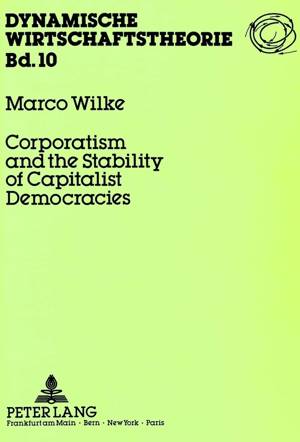
- Afhalen na 1 uur in een winkel met voorraad
- Gratis thuislevering in België vanaf € 30
- Ruim aanbod met 7 miljoen producten
- Afhalen na 1 uur in een winkel met voorraad
- Gratis thuislevering in België vanaf € 30
- Ruim aanbod met 7 miljoen producten
Zoeken
Omschrijving
This dissertation treats a problem which originally stems from Marxist political economic thinking: why do representatives of the working-class compromise with representatives of the capitalist class on major socio-economic topics on a national level, and what do such compromises look like? The author establishes the claim that macro-economic compromises between organized classes are both likely to result and unstable in their nature. It is shown how the state may act as an actor supporting the establishment of an institutionalized class compromise and how it may try to prevent the breakdown of it. After elaborating these claims in a dynamic macro-economic model, the author describes developments of class compromises in post World War II Sweden, Austria and the Netherlands to illustrate the theory.
Specificaties
Betrokkenen
- Auteur(s):
- Uitgeverij:
Inhoud
- Aantal bladzijden:
- 225
- Taal:
- Engels
- Reeks:
- Reeksnummer:
- nr. 10
Eigenschappen
- Productcode (EAN):
- 9783631437094
- Verschijningsdatum:
- 1/02/1991
- Uitvoering:
- Paperback
- Formaat:
- Trade paperback (VS)
- Afmetingen:
- 148 mm x 210 mm
- Gewicht:
- 279 g

Alleen bij Standaard Boekhandel
+ 165 punten op je klantenkaart van Standaard Boekhandel
Beoordelingen
We publiceren alleen reviews die voldoen aan de voorwaarden voor reviews. Bekijk onze voorwaarden voor reviews.











